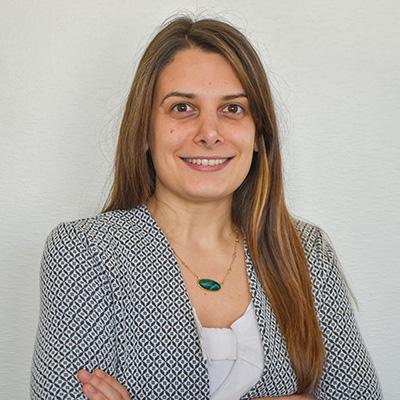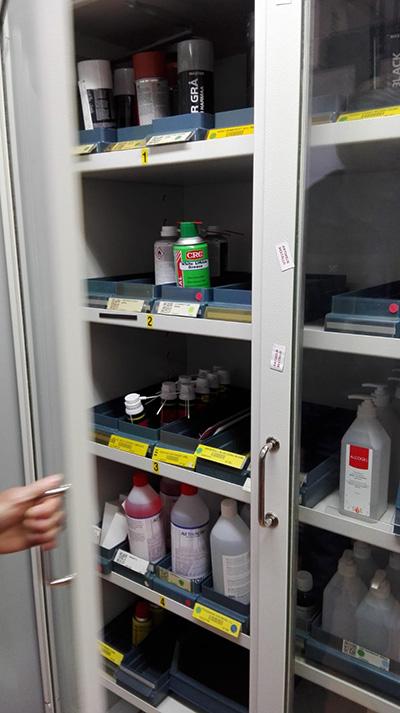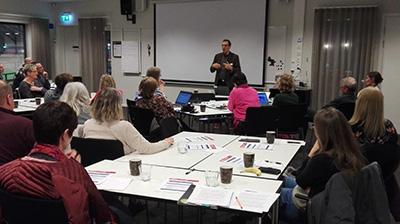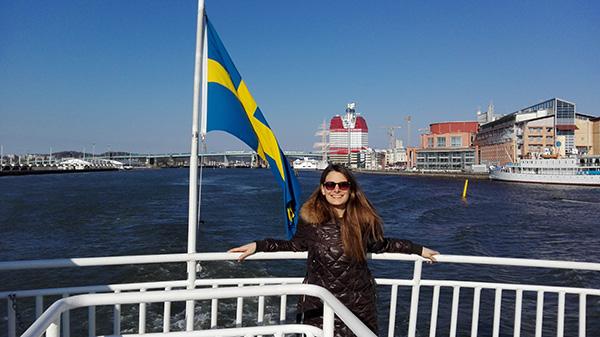
A blog post by Arianna Gamba, Procurement Policy & Projects Officer – HCWH Europe
This month I had the exciting opportunity to spend a week with HCWH Europe member Region Västra Götaland in Sweden. During my visit I learnt more about their efforts to implement sustainable public procurement and returned to Brussels full of information to share best practices throughout the HCWH membership. Whilst we prepare these case studies, I wanted to first share my initial impressions.
"Procurement is not merely a boring administrative task, but rather a powerful strategic tool to help achieve sustainability objectives"
Everything started with the traditional Swedish Fika – a time to chat with colleagues over coffee and tasty pastries – a very important part of the day. During these informal meetings, I was able to meet a wide variety of people across different departments and organisations within the Region: from Sahlgrenska University Hospital’s cardiology department to employees of the Gothenburg Opera House - all connected by the greater purpose of protecting the health of patients, customers, and employees, as well as the environment.
From policy to practice, here are the three key lessons I learnt from my visit:
1. Region Västra Götaland puts occupational health and safety and environmental protection at the heart of purchasing decisions

Environmental hazards of some products’ lifecycles (including disposal) are equally considered, and projects such as the botanical garden help biodiversity restoration and conservation in the region. A pilot project - the largest of its type in Sweden, filters rainwater containing traces of copper from old roofs so it can be used in the botanical garden. The region is also implementing pilot projects to improve patients’ mental health, which demonstrate that nature plays a key role in human well-being.
2. Get people on board and make them part of the vision – help them understand that their work has an impact
The team at Region Västra Götaland understands the importance of gathering people together to share challenges and best practices and making them feel that they are part of the solution. I experienced this approach in a workshop organised by the region’s Environmental Department to train employees from across different offices of the region.

In the workshop, this diverse group learnt about the region’s environmental policies, the importance of procurement and environmental criteria harmonisation, as well as following up contracts when tackling current challenges such as pharmaceuticals in the environment. I was also given the opportunity to present HCWH Europe’s European advocacy strategy, which relies on members’ work at local level. Observing what is happening on the ground with our members, HCWH Europe is always looking to scale up best practices, bringing policy makers’ attention to the challenges that health professionals face as we look to a European harmonisation of environmental public procurement criteria.
3. Collaboration and creating partnerships is key
Region Västra Götaland organises its procurement so that experts from different backgrounds can work in a team to address all sustainability angles of their procured products (e.g. chemical hazards, efficacy, circularity, material compatibility, etc.). This collaboration even goes beyond the Region – it can be seen at a national level with participation in such groups as the National Substitution Group as well as international collaboration with other Scandinavian nations. By joining forces when procuring, contracting authorities can indicate to markets that they have the purchasing power to influence it.
Swedish city councils have already calculated that their joint purchasing power amounts to approximately €13 billion and by working together, every Region in Sweden is now using the same social criteria and code of conduct to protect human rights. Regions in Sweden are also supported by the National Agency for Public Procurement that educates purchasing and sustainability staff. Regions also share results of their follow up actions during contract implementation to assure a coordinated approach and avoid duplication of work.
By looking at the amount of products available on the market and the factors to consider when procuring, I understood the complexity of choosing the right product that it is appropriated accepted by the final users. Each purchasing project can turn into an enormous team effort, this teaches us that sustainable procurement is a very long and complex journey, and yet far from being discouraged, we can see that through constant small steps, giving people a sense of purpose, and finding the right partners, it is feasible to implement sustainable procurement.
I always like to say that procurement is not merely a boring administrative task, but rather a powerful strategic tool to help achieve sustainability objectives. By incorporating your sustainability policies into tender criteria, and following up during contract implementation, you can transform markets and promote responsible business practices.
The hands-on experience during my time with Region Västra Götaland has proven enlightening and invaluable to my work at Health Care Without Harm, and the enthusiasm and passion shown by the region’s team has given me renewed energy and motivation to strive for a sustainable health sector.

Thanks to the Region Västra Götaland and Chair of the HCWH Europe Board Anders Bolmstedt for the inspiration and for hosting me – may your enthusiasm for sustainability continue!